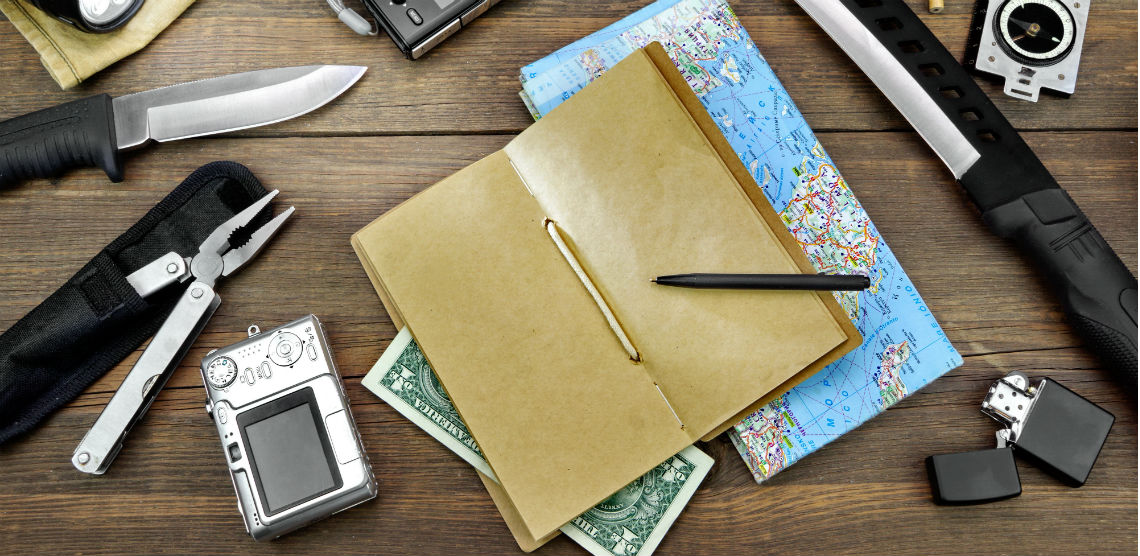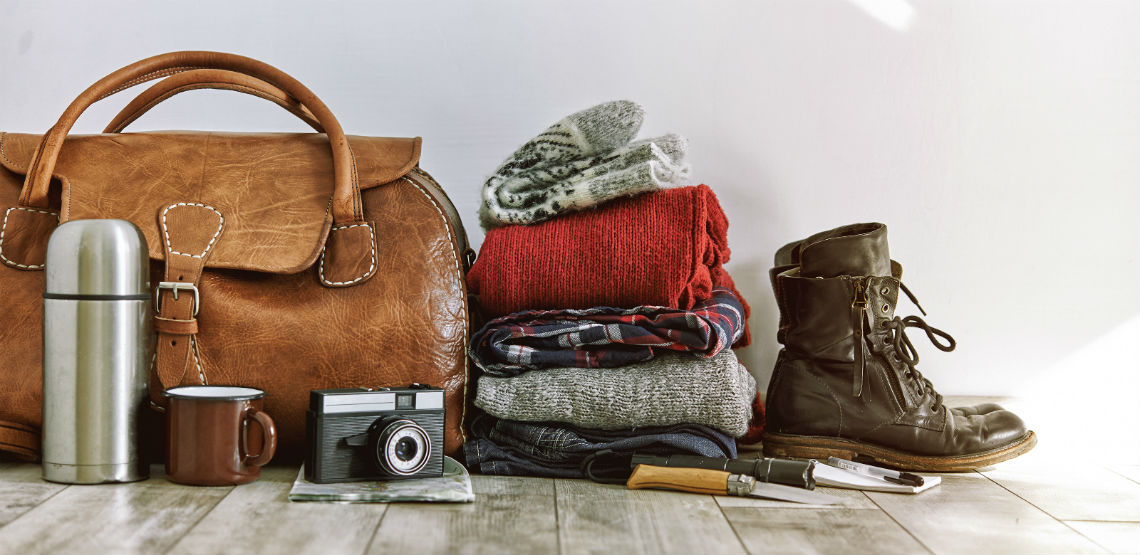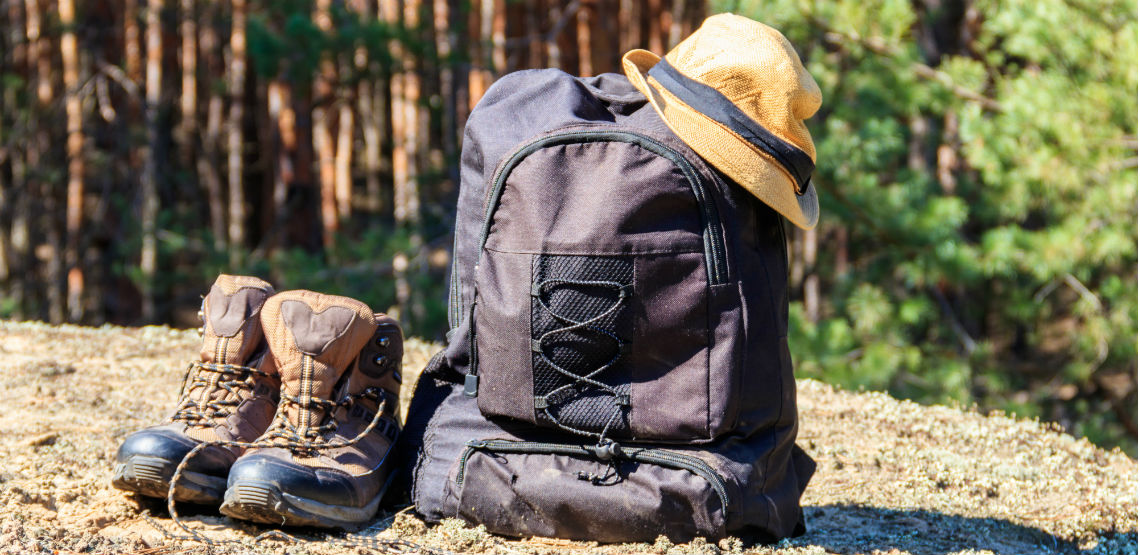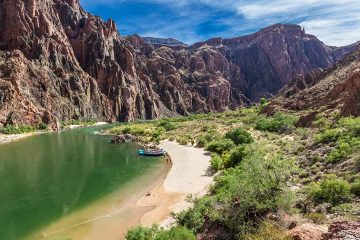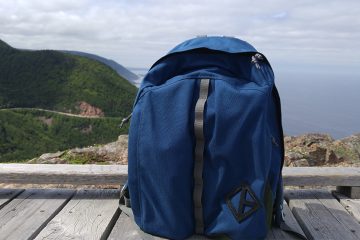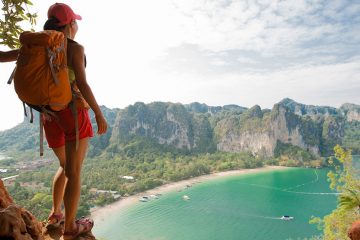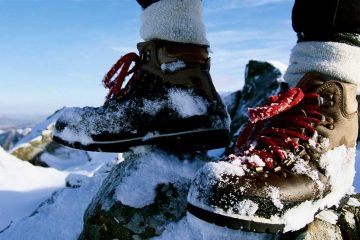15 Essential Hiking Supplies
Hiking Is Better When You Have the Right Gear
Hiking is one of life’s simple pleasures. While it’s an enjoyable activity, you also need to be prepared. To make sure you get maximum enjoyment from your time out on the trails, we’ve put together an essential hiking gear list. Here’s the hiking equipment you can’t leave home without.
A Daypack/Backpack
There are plenty of directions you can go with this, from the simple and chic Diamond Brand Belay Bag to an endless-feature Osprey pack. Key features to look out for are comfortable and adjustable straps, hip straps for extra support if you’ll be carrying any significant weight, a built-in rain cover, plus plenty of external pockets for easy access to snacks and gadgets. A water bottle pocket on the side is essential.
For multi-day hikes, packing cells and a dry bag are great additions for inside your backpack. Keeping things organized, with wet or dirty items separate from your clean gear, is essential for comfort.
For day hikes: Osprey Talon 22
For multi-day hikes: Osprey Atmos 65 AG
Water Purification
Water is essential on any hike, regardless of the length. It’s difficult to carry enough water to sustain you, so you should plan on filling up your water bottle and purifying the water somewhere along the trail. Water purification tablets are lightweight and easy to use, but limited in supply (one pack is usually around 50 liters).
A water filter is another great alternative, as are water bottles with built-in filters. These can provide you with up to 4,000 liters of purified water. The LifeStraw personal water filter is ideal for hiking, as it will remove bacteria and parasites from the water.
Good Footwear
Your hiking shoes can make or break your trip. You want your footwear to be comfortable, sturdy and suitable for the kind of hiking you’ll be doing. For day hikes, lighter sports shoes or trail shoes are fine. Longer hikes or rough terrain mean you will need hiking boots for the appropriate ankle support.
Waterproof hiking boots are preferable, so you can stomp your way through shallow streams without getting wet feet.
For day hikes: Salomon X Ultra 3 GTX Trail Running Shoe
For multi-day hikes: Salomon Quest 4d 3 GTX Backpacking Boots
Rain Gear and Warm Layers
While you’re walking you’ll feel warm, but you always want something to put on and maintain that warmth as soon as you stop. If your clothes are damp from sweat you can become chilled easily. You should also take rain gear if there is even the slightest chance of rain, as exposure to the elements can be dangerous.
For excursions longer than two days, you should take rain gear regardless of the weather forecast. The Marmot Minimalist Lightweight Waterproof Rain Jacket is perfect for light travel and wet conditions.
Map/Compass/GPS
For well-marked day hikes, you can get away with using only your smartphone for directions. For trails that aren’t well-used, or for multi-day treks, you’ll need a map. As well as your planned route, it will help you find campsites, water sources and the fastest way out of where you are if an accident occurs.
A compass is very helpful for making sure you stay oriented and walking in the right direction. Try the SUUNTO A-10 Recreational Field Compass. Just make sure you actually know how to use a compass — it won’t do you much good otherwise.
A Reusable Water Bottle
A stainless steel water bottle is ideal, as it will keep your water cool for longer. Take an insulated bottle for multi-day hikes, and you have the added bonus of being able to use it as a thermos for hot tea in the evenings.
The Klean Kanteen Insulated Classic 32 oz is the ideal drink bottle for hot and cold liquids.
Base Layers
You’re guaranteed to work up a sweat when hiking, so it’s crucial to have quick-drying base layers (and to know how to stay clean while backpacking). Cotton isn’t a good fabric for hiking clothes, as it takes a long time to dry and will make you feel cold as soon as you stop walking. Avoid wearing cotton t-shirts and opt for polypropylene or merino base layers.
Sweat-wicking fabrics will help you stay comfortable and keep you warmer when you stop moving. For multi-day hikes, stock up on base layers and just switch them out over the days — your top layers don’t need to be changed as often as the base will absorb most of your sweat.
Another bonus of good fabrics is that you can easily wash out your base layers when you stop for the night and they will dry quickly. Base layers are typically short or long sleeved t-shirts, but you can also have leggings in the same kinds of fabric. You can even go as far as moisture-wicking underwear! Icebreaker crew base layers are classic hiking clothing items.
A Good Fleece
There’s nothing more comforting than putting on your cozy fleece at the end of a long day of hiking.
Wool Socks
Natural fibers are excellent for hiking supplies. Wool socks are always a great choice as they will keep your feet warm when it’s cold and are comfy enough that they will cushion your feet. They also resist odors for longer.
Whitewater rafting in the Grand Canyon will be an adventure you won't soon forget. We go over the best outfitters and a range of trip options.
A Knife or Multi-tool
You never know when a knife might come in handy. Trimming a branch to make a walking stick, cutting bandages, slicing up apples — you can use your knife for pretty much everything. Swiss Army knives or multi-tools also have handy extras like tweezers.
Cover all your bases with the Victorinox Swiss Army Pioneer X Multi-Tool.
A Headlamp or Flashlight
For overnight trips you will definitely need a flashlight of some kind — finding the bathroom in the dark can be both scary and difficult!
The Black Diamond Spot Headlamp will make nighttime bathroom trips a breeze. You’ll be especially happy you have a headlamp over a flashlight if you have to set up camp in the dark.
Energy-Packed Snacks
As well as the food you’ll need for the hike, make sure you cram some good snacks into your backpack. Dried fruit, nuts, energy bars and jerky are all full of energy and compact enough to carry.
Sun Protection
You’ll be outside all day, so take plenty of sunscreen, a hat and sunglasses — even in winter!
First Aid Kit
Don’t leave home without a first aid kit. It can be simple — basics such as band-aids for blisters, or painkillers for headaches will almost always come in handy. You also want to have bandages, antihistamines and antiseptic creams for more serious cuts or stings.
A Trash Bag
Good hikers carry all their trash out with them. Keep your pack clean and well-organized and take a dedicated trash bag with you.

